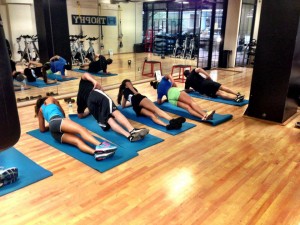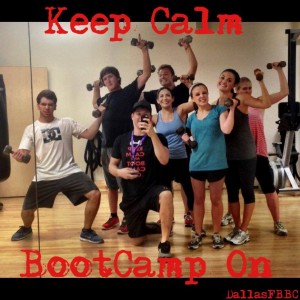You try to eat healthy. You get enough sleep each night. And you exercise regularly. So why do you feel dragged out?
Don’t be alarmed. Millions around the world deal with the same problem. And for many, the answer lies in what they’re eating. How?
Food provides your body with energy. Some foods provide more energy than others. Even though a food may be considered healthy, it may not be full of energy-boosting nutrients.
Beat your afternoon slump with these diet tricks that the Dallas boot camp recommends:
Start the Day off Right
Begin each day with breakfast. Your body needs its energy stores replenished after a long night. Breakfast gives you energy and helps to keep you focused, while also helping you reach and maintain a healthy weight.
You can’t eat junk, however, for breakfast. A meal full of white, empty carbs is sure to leave you feeling irritable and hungry by the middle of the morning. Popular breakfast items include white pancakes, toast, waffles, bagels, cereal, or muffins, but they’ll all have the same end result: weariness and hunger. Rather than white carbs, choose whole-grain baked goods that contain soluble fiber. This type of fiber slows the rate your body absorbs sugars and slows digestion. You’ll feel fuller longer and your blood sugar levels will stay more even.
Choose cereals that contain a minimum of 5 grams of fiber. If you’re a fan of toast, opt for bread that has at least 2 grams of fiber per slice.
Snack Often
One reason you may feel sluggish is because you’re hungry. Maybe you’ve got a fast metabolism or you’ve been exercising more than usual and your body needs extra fuel. Your body was made to eat smaller, more frequent meals, so feed it just that!
Many people are too busy to pause for a small snack, but if you go more than two hours between eating, your blood sugar begins to drop and your energy level as well. Plan to eat a mid-morning and mid-afternoon snack to get you through the day.
For optimal energy, snack on a good balance of protein and carbs. Try some Greek yogurt, an apple or banana with a little peanut butter, some low-fat popcorn, or a handful or almonds or walnuts.
Choose These Foods

Many popular diet plans these days limit the number of carbohydrates you can eat. Carbs, though, are what give your body energy. If you’re on a diet that restricts carbs and you’ve cut out breads, pasta, and rice altogether, you may be feeling sluggish or moody. You can get healthy carbs from whole grains, fruits, and veggies. Whatever diet you’re on, be sure to get a balanced mix of complex carbs, fiber, lean protein, and healthy fats.
If you’re feeling low on energy, add cruciferous vegetables to your meal. All veggies are good for you, but broccoli, cauliflower, sprouts, and kale are known for giving muscles an extra energy boost.
Many people—especially women—feel dragged down due to an iron deficiency. Iron is a mineral that helps build muscle cells and hemoglobin, the part of blood that carries oxygen around your body for energy. Unfortunately, it’s fairly common for women to eat healthily and still miss out on adequate amounts of iron.
Until age 51, women need 18 milligrams of iron a day. At age 51, they only need 8. If you suffer from heavy periods or are a vegetarian, you are at an increased risk of iron deficiency. When you’re feeling fatigued, order steak for dinner. Beef is high in the type of iron your body needs. Other iron-rich foods include spinach, kidney beans, and fortified cereals. Couple these with foods that are high in vitamin C (many fruits and vegetables) to help your body absorb the iron. Limit the amount of coffee and tea you drink with a meal or following a meal as the acidity in these drinks can block iron from being absorbed.
If these fatigue-fighting tips don’t seem to do the trick, the boot camp in Dallas says to go ahead and make an appointment to see your doctor. An underlying medical condition may be to blame.

